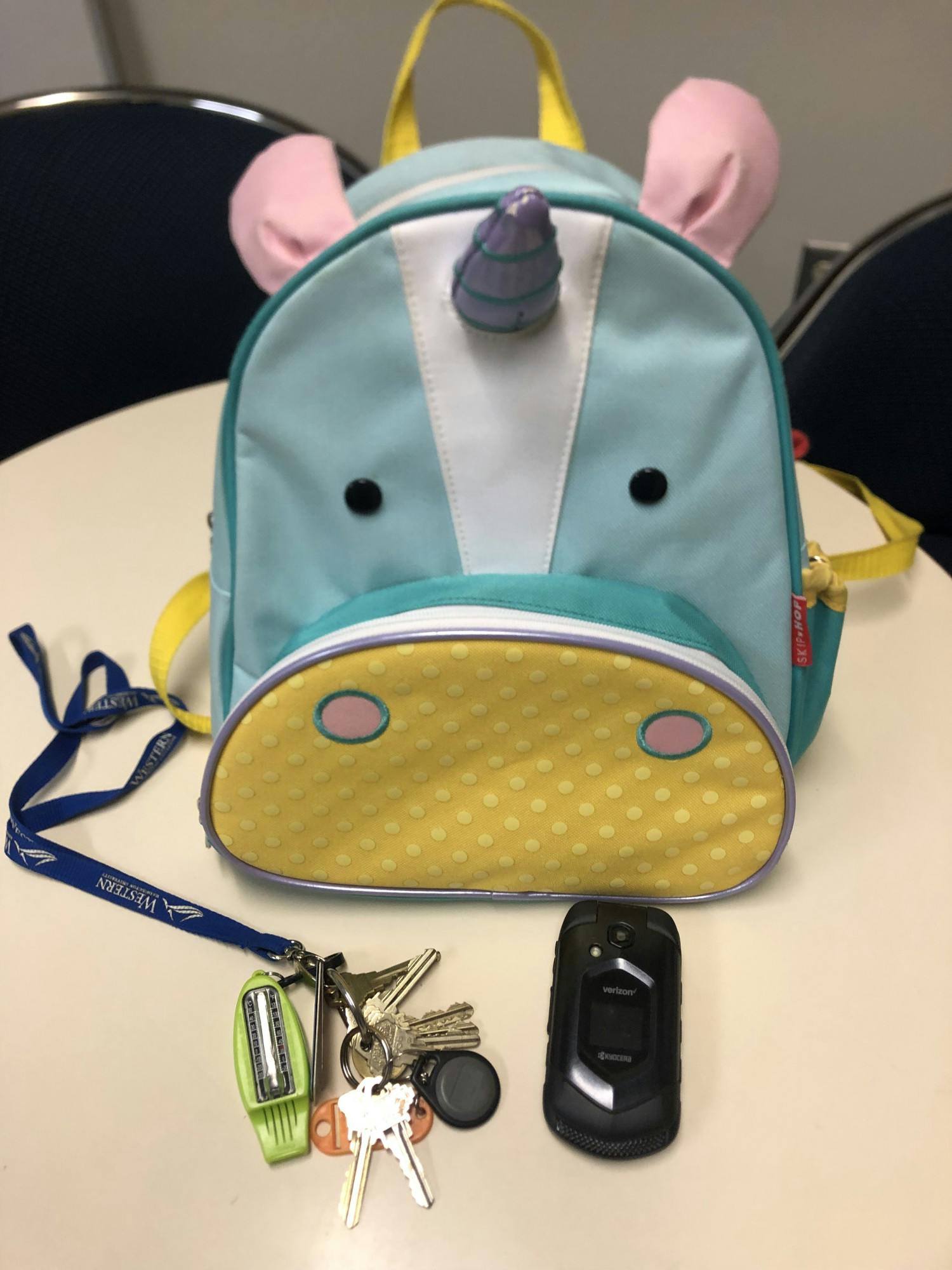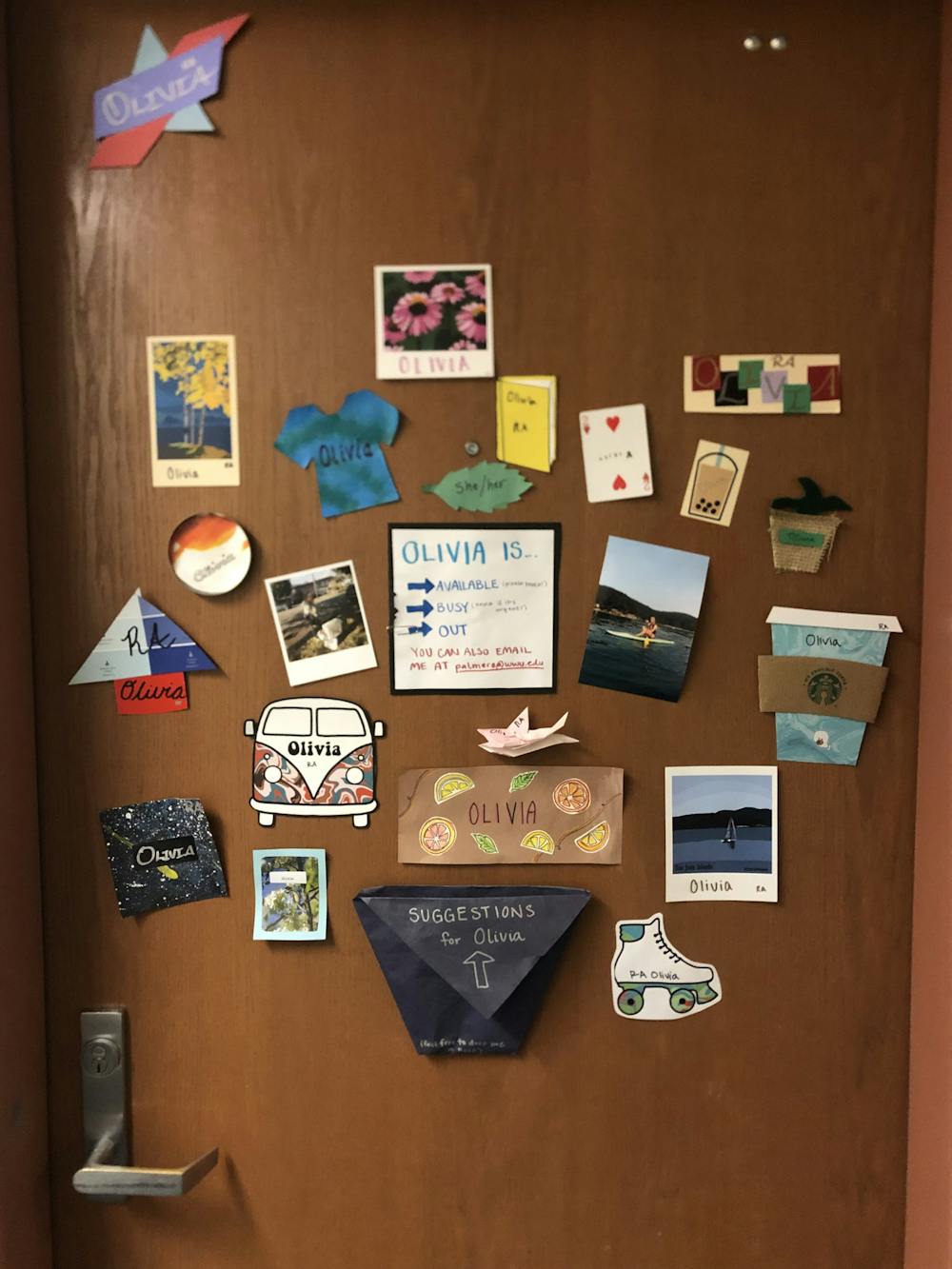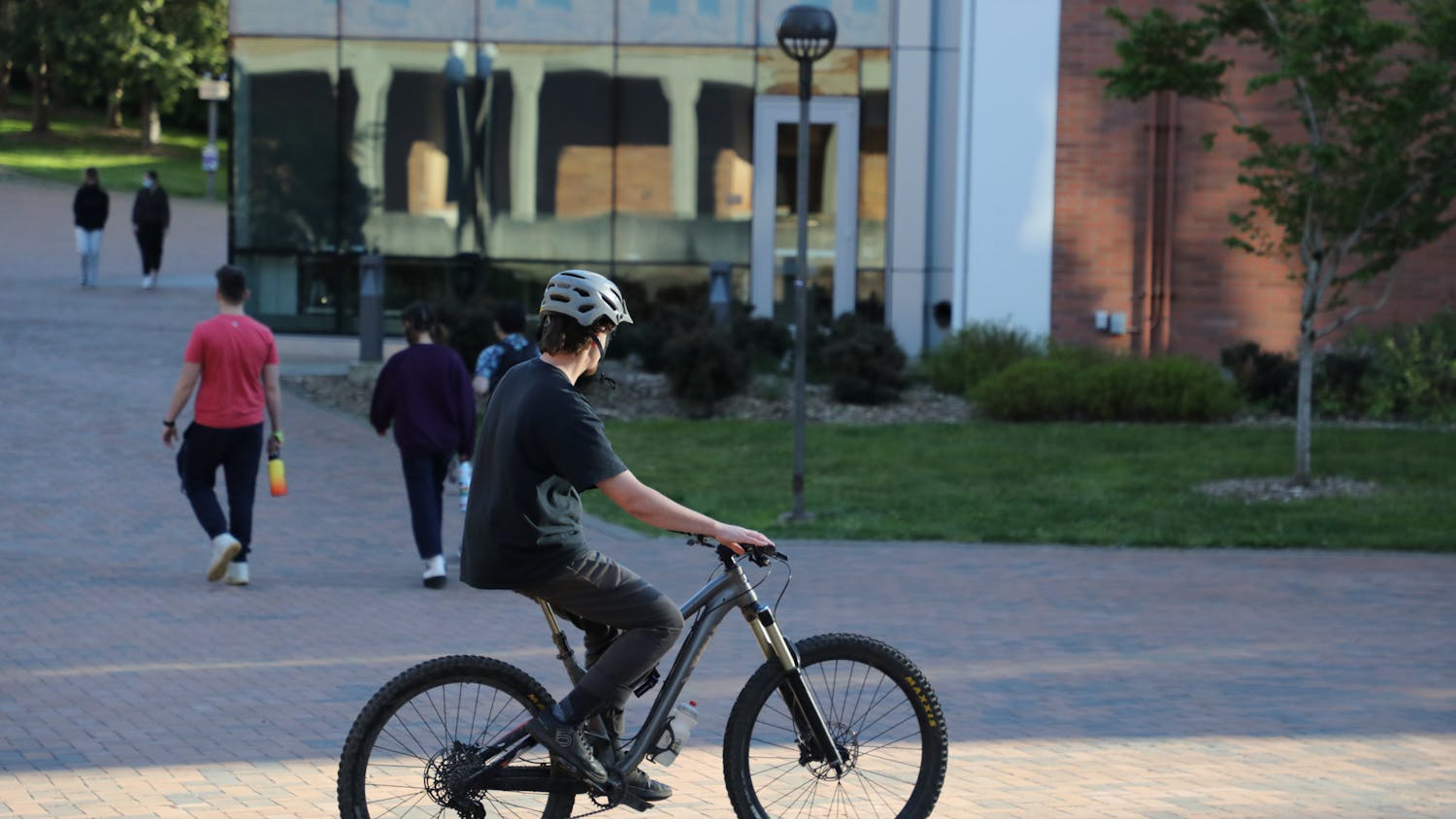Resident Advisors at Western Washington University receive room, board and the privacy of a single dorm, but is the job worth it? Tasked with overseeing dozens of residents, RAs build community and show support for the students.
“Much of the job is having individual and small group conversations on how to navigate conflict and help create a healthy living environment both in room/suite and in the larger community,” Richard Henderson, the assistant director of Residence Life, said over email.
Many students decide to apply for the position because of the room and board.
“I decided to be an RA because it was a good financial decision and I had some experience in advising students.” said Jamie Frunk, the RA of Beta stacks seven and eight. Frunk has been at Western for two years and used to work for Off-Campus Living.
Olivia Palmer, a third-year at Western and the RA for Edens floor two was motivated by financial reasons, but also because she has “a real desire to more intentionally invest in community building.”
Frunk said that many people see the RA job as mainly consisting of policing drugs, alcohol and rambunctious activities — but in reality, it is more about safety.
Most college students are at an age where they don’t need supervision, but often need emotional and academic support and to be held accountable for their actions.
“A lot of it is more just being present,” Palmer said.
Frunk said that because his residents are all first-year students, they are less prepared for living alone and so the job is a bit more taxing than those with residents who are upperclassmen. He said his residents are self-sufficient enough for the job to not take up a lot of his time.
Palmer's favorite part of the job is the community building she gets to engage in. “My residents are what make the community,” she said.
Part of this community-building and visibility the RA’s aim for is conducting intentional conversations. Once a quarter, residents are asked to sit down with their RA’s to discuss any problems they may be having.
“RAs are expected to engage in intentional conversations with residents to build relationships and understand the needs of each resident in their community,” Henderson said.
“I just to get to know the students around me, try to build that community myself,” Frunk said.
Palmer finds her job incredibly rewarding, but there are parts she wishes she could skip.
Every day, RAs are expected to do rounds of their community. This includes sticking their heads in any shared lounges, kitchens or bathrooms to ensure resident safety.
“Most RAs would probably say that those 1 a.m. rounds are kind of brutal," Palmer said. "Most RAs would also probably say that getting a call at 2 in the morning, just as you were trying to fall asleep, is pretty brutal.”
When RAs are on call, they are responsible for responding to any resident calls during their shift. For Edens, RAs are given the “on-call” backpack, which has been named Jimmy, that holds a flashlight, extra keys, an ancient flip phone residents can call and more.

The on-call backpack Olivia uses, named Jimmy, holds keys, a cell phone and more. // Photo by Jemma Alexander
As well as being physically tiring, the RA job can also be emotionally taxing. RAs are expected to be able to face mental health crises, intoxicated students, sexual assault and more.
“People are going to have mental health issues and you are going to not be ready for it no matter how much training they put you through,” Frunk said.
In very serious situations, all RAs can do is call 911. Frunk said this is not always the best choice for the resident. “It's tough to deal with the fact that that's all we can do,” they said.
One of the most common situations RA’s have to deal with is roommate conflicts. Residents come from all different kinds of homes, and transitioning to living with someone new can be challenging.
“I’m not responsible for solving your problems, I'm not responsible for finding answers, but I do take responsibility in helping you work through things and giving you all the resources you might need to find solutions that work for you,” Palmer said.
RAs are expected to handle these situations because they have been trained to. “There is constant ongoing training to help them be better in their current roles but also prepare them for post-college employment,” Henderson said.
When Palmer was hired, she went through what she described as a week and a half of intense training with her coworkers.
“Behind Closed Doors” is a training exercise Palmer had to do at the end of the week and a half. Professional staff and returning RAs acted as residents to create mock scenarios and test the new RAs’ knowledge.
Palmer said she has to “navigate the line between expressing genuine concern and being able to give resources but also recognizing that I am not a counselor.” She must always be aware of people's different comfort levels.
The RAs that got hired in the fall did the training in person. Frunk, who was hired in the winter, did it all online, including the “Behind Closed Doors” exercise.
“Our goal is to develop each RA and AA [Apartment Advisor] and give valuable opportunities to receive key experiences that will enhance a resume and provide skill development that will serve our staff as they enter the professional workforce,” Henderson said.
Eve Williams is a first-year at Western and a resident of Fairhaven dorms. She said she would not want the job. “It's stressful and everyone would hate me,” she said. Williams has often noticed her RA stressed from the job.
Williams is not super close with her RA, but said she would feel comfortable coming to her with problems she may have. “With her specifically, cause I like her,” Williams said.
RAs receive room, board, privacy and the chance to be a big part of their community. However, if you are someone who needs lots of sleep and is uncomfortable handling delicate situations, maybe see if the dining hall is hiring.
“The RA job is not for everyone but it impacts almost everyone on Western’s campus in one way or another,” Palmer said.

Jemma Alexander (she/her) is a campus life reporter for The Front. She is a senior majoring in journalism new/ed and minoring in Arab American studies. When she's not doing homework, Jemma is likely working, talking loudly over movies with her roommates or dancing ’till she drops. You can reach her at jemmaalexander.thefront@gmail.com.






